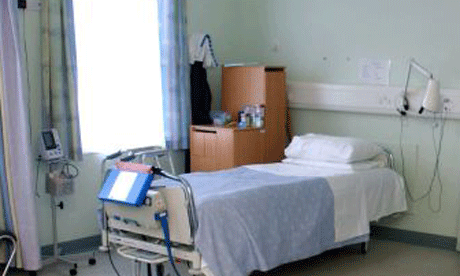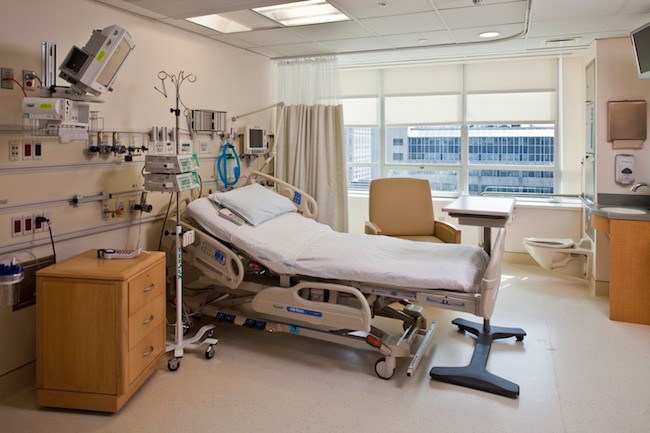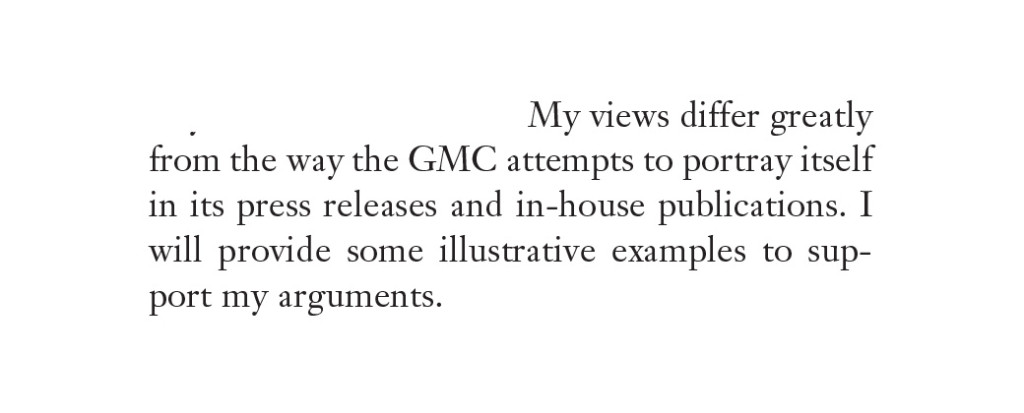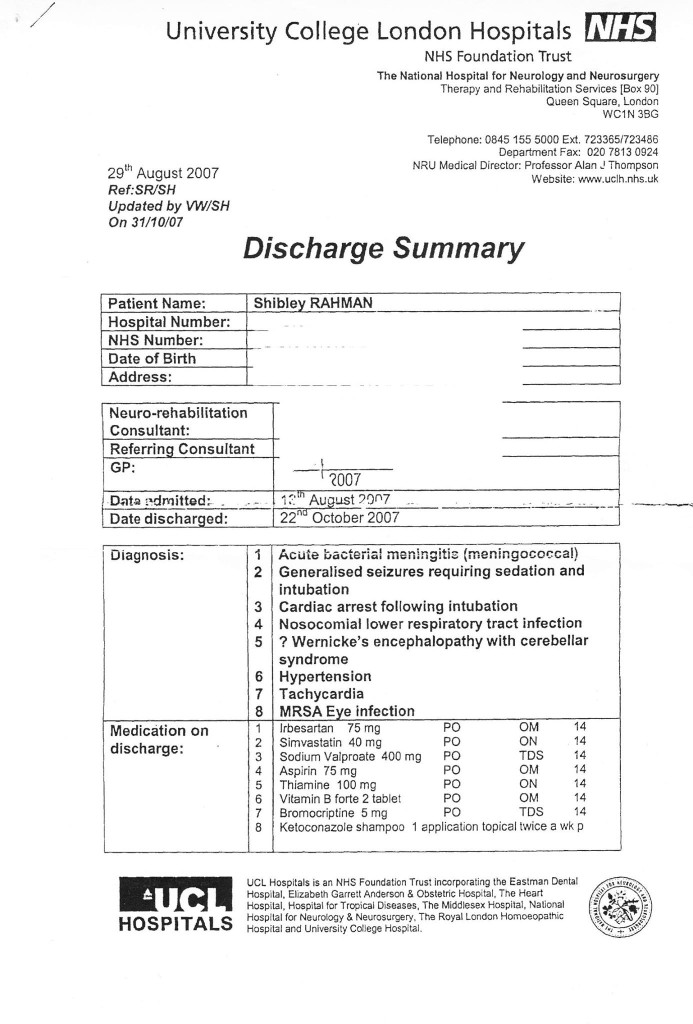Home » Posts tagged 'death'
Tag Archives: death
I understand why there have been so many deaths of Doctors waiting GMC FTP. That could easily have been me.
At least 96 doctors have died while facing a fitness-to-practise investigation from the General Medical Council since 2004, though it is not clear how many of these cases were suicide.
I can understand exactly how this has happened.
I had a prolonged GMC investigation between 2004 and 2006. At no point during this process was I told when then this mentally arduous process would come to an end.
I think now, seven years into recovery, that there by the grace of God go I.
The media have a remarkably level of detail of understanding from the perspective of the General Medical Council about forthcoming cases. It is impossible for the Doctor to get his side across in the media.
The GMC claim they don’t do show trials.
But my father was fully humiliated with the media storm.
My father was faced with a Doctor son who was in denial and lacked insight. My father is now dead, but I should like to say he probably died in complete humiliation of his son.
My experience is of a GMC which plays to people’s weaknesses in low self esteem and low confidence, a personality trait shared by many with addiction disorders.
Not one report in the mainstream media reported that I was severely alcoholic. And yet the GMC, prior to their erasure of me, erased me with five independent reports stating clearly that I had at least a severe alcohol problem; and that I needed help.
One of the referrals to the GMC was when I attended the A&E of a hospital with acute intoxication. In addition to the referral to the GMC by the Consultant in A&E, I was not offered any post-event support for alcoholism.
The GMC know how to present themselves in the media, but this is in contradistinction to the experience of those who have experienced the Fitness to Practise process first hand.
Dr Peter Wilmhurst writes in 2006 in a wide-ranging criticism of the GMC as follows:
In wishing to infer ‘bad character’, the General Medical Council must not go beyond its statutory duty of promoting public safety. Otherwise, there is simply mission creep and a torrent of smears into a hate campaign by the regulator or its company.
In 2005, one year before I was eventually due to see the GMC, I was suspended. This was due to an alcoholic bender in Northwick Park. I was crying all day in a pub because I could not cope with the investigation any more.
I had waved goodbye to my late father, and lied to him saying I was going shopping.
I didn’t. I ended up being sectioned by a psychiatric hospital in North London, and my father spent ages talking to the medical staff there.
I was then suspended. It was at that point, I wished to call it a day.
I phoned the Samaritans, and they talked me out of it.
I have never told anyone this story. I feel very strongly about what the General Medical Council did to me, even though it might have been merely a product of their inefficiency.
Nobody appears to wish to want to change the system. I’m pretty sure that there are juniors who wish to hold tight until they are Consultants.
What happened to me is that I had consultants in two Trusts in West and North London who said I was ‘late for work’, ‘smelling of alcohol’ and ‘dishevelled’.
None of this got reported in the main media.
I was erased. To this day, I still have no idea who retrospectively complained in graphic detail about my alcoholism did not offer me sick leave, or help with occupational health.
One of them even had the gall to write in his witness statement for the GMC that he gave me the phone number of a private clinic.
I find this particularly ironic as I was later done for incompetence, when that North London trust had allowed me to finish my medical job there, successfully running cardiac arrests there. I passed my Advanced Life Certificate there. I even have the certificate to prove it.
I feel disgusted by the way that the General Medical Council goes about its business.
Far too many one-sided media reports appear in the media containing detailed accounts, as yet unproven. There’s a sense of being hung before you even go to the gibbet.
I am now in my seventh year in recovery. I have done four books, and my Bachelor of Law, Master of Law and Master of Business Administration.
I even completed my pre-solicitor training, as I am regulated by the Solicitors Regulation Authority.
My late father died two months before the Solicitors Regulation Authority gave me permission to finish my legal training, after a meticulous consideration of various factors including details of my erasure.
I am now applying to be restored. And so everything gets racheted up again. The dogs will get unleashed.
And so far they’ve dragged me up to the City where I was struck off, without my late father, surrounded by the same bars and clubs and restaurants. I didn’t have a relapse. Care and compassion are simply two words which are not in the GMC’s dictionary.
I am even applying to go to a desk, non “facing job”. I am now following my erasure newly disabled, so I would not wish to do clinical medicine in any form.
I do not want to be in public health with the stigma of having been erased, for a period of life when I was very ill, and the undoubted discrimination that that would entail.
I had one year of sitting in a pub all day after I was eventually erased in 2006.
This was an extremely dangerous part of life. For my father, it was unbelievably distressing. Nonetheless, he came to visit me every day on the ITU when I was in a coma due to this a year later.
I so understand why there have been so many deaths of Doctors waiting GMC FTP. That could easily have been me.
But I am fighting fit now, and looking forward to my hearing very much.
The death of Ian Tomlinson – important issues of 'but for' and 'the thin skull rule'
This week, Simon Harwood was cleared of killing newspaper seller Mr Tomlinson during the G20 protests in London in 2009. The latest developments, at the time of writing, are outlined here, for example. Ian Tomlinson was an English newspaper vendor who collapsed and died in the City of London on his way home from work during the 2009 G-20 protests. An inquest jury found in May 2011 that he had been unlawfully killed. Simon Harwood, a constable with the Territorial Support Group of London’s Metropolitan Support Group was charged that month with manslaughter and was found not guilty on 19 July 2012 at Southwark Crown Court. The first PM, conducted two days after the death, concluded that Tomlinson had died of natural causes after suffering a heart attack. His death became controversial four days later when The Guardian published video footage from an American investment manager who had been visiting London. The video showed Tomlinson being struck on the leg from behind by a police officer wielding a baton, then pushed to the ground by the same officer. He walked away after the incident, but collapsed and died minutes later.
Here is the footage from the Guardian, watchable on YouTube, with a helpful explanatory commentary.
After The Guardian published the video, the Independent Police Complaints Commission (IPCC) began a criminal inquiry. Further postmortems, conducted by three other pathologists on April 9 and 22, indicated that Tomlinson had died from internal bleeding caused by blunt force trauma to the abdomen, in association with cirrhosis of the liver. The Crown Prosecution Service (CPS) announced over a year later in July 2010 that no charges would be brought against Harwood, the officer identified as having struck him, because the disagreement between the first and later pathologists meant the CPS could not show a causal link between the death and the alleged assault. That position changed in May 2011 when an inquest jury returned a verdict of unlawful killing, ruling that the push and baton strike had involved unreasonable force. This led the CPS to review its decision and charge Harwood with manslaughter.
Voluntary manslaughter occurs either when the defendant kills with a mental state which could be described as “malice aforethought” (an intention to kill or cause serious harm), but there are mitigating circumstances which reduce culpability, or when the defendant kills only with an intent to cause serious bodily harm. A killing which occurs after provocation by an event which would cause a reasonable person to lose self-control. There must not be a cooling off period negating provocation. If there is an interval between the provocation and killing sufficient to allow the passion of a reasonable person to cool, the homicide is not manslaughter, but murder. Here, critically, the footage video shows no provocation on Tomlinson’s part—he was not a protester, and at the time he was struck was walking along with his hands in his pockets. If one argues that it is uncertain beyond reasonable doubt that Harwood wished to kill Tomlinson in the first place, voluntary manslaughter for securing a conviction is not an option.
Constructive manslaughter is also referred to as ‘unlawful act’ manslaughter. It is based on the doctrine of constructive malice, whereby the malicious intent inherent in the commission of a crime is considered to apply to the consequences of that crime. It occurs when someone kills, without intent, in the course of committing an unlawful act. The malice involved in the crime is transferred to the killing, resulting in a charge of manslaughter. For example, a person who runs a red light in their vehicle and hits someone crossing the street could be found to intend or be reckless as to assault or criminal damage (see DPP v Newbury). There is no intent to kill, and a resulting death would not be considered murder, but would be considered involuntary manslaughter. The accused’s responsibility for causing death is constructed from the fault in committing what might have been a minor criminal act.
The difficulty here is proving beyond reasonable doubt, and this is where the Court can only be directed by expert opinion evidence from medical professionals, who can give such evidence which is admissible in a criminal court, that causation had taken place. There has been to proven a direct link between the baton strike and the subsequent death. This was discussed in R v White (1910), where the prosecution failed to establish causation in fact; The defendant put cyanide into his mother’s drink, but she died of heart failure before the poison could kill her. The answer to the question ‘But for what the defendant did would she have died?’ was in fact ‘No’ as she would have died anyway. She had not committed murder.
I’ve never read the judgment, but patients with severe cirrhosis, in my knowledge, always have deranged clotting evidenced by their clearly abnormal prothrombin and APTT times. Such patients would therefore be extremely prone to haemorrhage, and a direct blow by the baton to Harwood would be different as Harwood is a susceptible individual. This rule is therefore highly relevant, in my view. Cited formally, the ‘thin skull’ rule says that the defendant must take his victim as he finds him. Therefore, even if injury or death is not reasonably foreseeable the law still considers the defendant liable if the victim suffered from some physical or mental condition that made him or her vulnerable.
Helena Kennedy QC explained on BBC Any Questions last night that the burden of proof in criminal law was necessarily high, beyond reasonable doubt. This was to large degree a public policy consideration, so that the State and the public could feel safe in the convictions that the Crown had secured, and this necessarily was a good thing. Having a jury go through the evidence in detail was felt to be far superior to trial by media, argued by other panellists such as Kelvin Mackenzie.
I personally feel that we should not go down a path where ‘trial by media’ becomes superior to the criminal justice system. I feel that the public, especially law students, should be very careful about what they tweet in public, as the law and medical issues in this case are extremely complicated.
The author of this blogpost does not practice law or medicine, has postgraduate degrees in both, but has a strong academic interest in such matters.
Indeed Christmas is a tough time for recovering alcoholics

Christmas is supposed to be a very tough time for recovering alcoholics. I must admit that I am extremely proud that I am now 42 months in my life-long recovery. It’s difficult, but waking up on the top floor of the Royal Free NHS Hospital having been in a coma for six weeks in 2007 had a lot to do with it. I think of my father being told the news that I was going to live, and that I had come round from my coma. At the time, he had no idea that I would have stopped drinking alcohol for good. He stood by me by thick and thin, including my Bachelors and Masters of Law between 2008 and 2010. I feel that by the end he was proud of me, but I felt dead myself thinking about his sudden death on 10th November 2010 due to a heart attack. I think of all the people and institutions who have disgusted me, but I think of the integrity and power of my father who were strong until the end, despite his own suffering. So – I didn’t think once about having a drink, although this is supposed to be the party season, but my mum and I (we live together in a small flat in Primrose Hill) think though about my father every single second. I hope you had a very nice christmas, and I wish you personally every success for a demanding 2011.
Best wishes,
Shibley
I am on
and
Shibley Rahman dealing with death – a journey
Something I have discovered in the life is that there will always be people who like you whatever you do, those people who dislike or strongly dislike you whatever you do, and the remainder who are clearly indifferent. Encyclopaedias will have been written about Tony Blair before I die, and, whatever one’s views on his contributions to British politics, I would like to challenge any person with compassion not to find this personal extract from ‘The Journey’ inspiring. OK, fair enough, we’re all aware of the circular discussions about Blair’s Britain, but this is a very human, open, piece of writing, about the death of his mother, and the profound influence on him of his father, which I find deeply impressive on a human level.

In my case, my mother is alive-and-well, but my father passed away suddenly at the Royal Free NHS Hampstead on 10th November 2010 at 7 pm. My father has had a profound impact on my development as a person, and I particularly remorseful about the fact he would often allude to questioning himself about why I became an alcoholic. I am now in recovery for 40 months now, so I feel too that I have been successful in the first steps of ‘my journey‘. As it happens, I think my father was Tory for much of his life, with the same cognitive scheme as Tony Blair’s father, until the final few years of his life, when his thinking was very much like Tony Blair, particularly on the role of aspiration in society. My father was, after all, a very successful General Practitioner in Burgess Hill, from the late 1970s to when he retired in the mid 1990s. I can relate to Tony Blair’s description of his mother; my mother’s relationship to my father is virtually identical, except she has never hidden the fact that she is a Tory. I can also relate to the idea coming down from Oxford in their third term at the end of June, with his family having protected him from the details of his mother. For what it’s worth, I feel in retrospect that my father had been suffering for a very long time, without my knowledge. This is to my shame, for not inquiring enough.
Life is definitely a journey, but with I hope future happiness and opportunities, to match. However, at this current time, I am aware of the fact that we all have – finally – the same destiny.
But none of that defined the principal impact on my political development. What Dad taught me above all else, and did so utterly unconsciously, was why people him become Tories. He had been poor. He was working class. He aspired to be middle class. He worked hard. made it on his merits, and wanted his children to do even better than him. He did thought – as did many others of his generation – that the logical outcome of this striving, born of this attitude. was to be a Tory: to sides of the same coin. It became my political ambition to break that connection, and replace it with a different currency. You are compassionate; you care about those less fortunate than yourself; you believe in society as well as the individual. You can be Labour. You can be successful and care; ambitious and compassionate; a meritocrat and a progressive. Moreover, these are not alien sentiments in uneasy coexistence. They are entirely compatible ways of making sure progress happens; and they answer the realistic, not utopian,claims of human nature.
So he affected me deeply, as in another way did my mum. She was as different from my my dad as it is possible for two people living together to be. Dad was more like me: motivated, determined, and with a hard-focused ambition that, I fear, translates fairly easily into selfishness for both of us. Mum, by contrast, was a decent, lovely, almost saintly woman. She was shy, even a little withdrawn in company. She supported Dad politically, as his wife and companion, but, as she used to confide in me occasionally, she was not really a Tory. For some reason = maybe to do with her Irish background – she felt somehow excluded; and she thought that some of the more Tory friends hd fallen away when Dad went ill.
She died when I had just turned twenty-two. She had been ill with cancer of the thyroid. Looking back, it was clear she couldn’t survive, clear indeed it was a minor miracle that she survived for the five years after she was first diagnosed.
But the shock of it. There is nothing like losing a parent. I don’t mean it’s worse than losing a child. It isn’t. I don’t think anything can be. I mean it affects you in a unique way; at least if it happens when you’re young. Mum’s death was shocking because I couldn’t contemplate it. As she deteriorated, and I was in my last months at Oxford, working hard for my final exams, Dad my brother Bill kept from me the truth of her condition. I came home at the end of June and Dad picked me up from the station, “Your mother’s really very ill”, he said.
“I know, but she’s not dying, is she?” I said, stating the worst so that he would reassure me, as I stupid expected.
“Yes, I am afraid she is”, he replied. My world turned upside down. I could not imagine it. The eprson who had brought me up, looked after me, was always there to help and cherish me; he person who loved me without a consideration of my entitlement, without an assessment of my character, without wanting anything from me; the person who simply loved me; she would be gone.
Life was never the same after that.”
Extract from Tony Blair, “A Journey” Hutchinson, 2010
But – latterly – I have become aware of the fact that, whatever our journey in life, we do have the same destination; or junction, depending on your religious viewpoint.
Please read : "Shibley, Shibley – Problem, Problem"
I went to see my father with my mother to Ward 6W at the Royal Free Hospital. Instantaneously, he looked pleased to see, recognized me as ‘Shibley’, and then appeared to be very agitated and restless. He moved on to say, ‘Shibley, Shibley, Problem, Problem’. I went to the toilet, and when I came back, I found that the arrest team were there. He had lost output, and he had had a heart attack. I knew his blood pressure had dropped, and at that point did not understand the severity of the event. I had only minutes’ earlier been clutching his Lucozade, forced him to take a sip or two, but left the biscuits and chocolates, as well as his ‘Get well soon’ and ‘Thank you’ card in the bag.
I will bury these items with him. I will wear his shoes though, which he had bought the previous week from Oxford Street in Marks and Spencer.

What followed as the worst day of my life. I never saw him again until bed 3 in the ITU. In between, the Consultant Cardiologist, who used to be my SpR at the Hammersmith, caught up with my progress since my recovery and since I went feet-first into my legal studies and promoting awareness of dementia. He explained fully that it was likely that my father would not survive. Actually, his normal echocardiogram was a false positive pre-operatively; we both knew pre-operatively that he was having severe episodes of chest pain at rest but the anomaly was such that his coronary arteries were delivering a normal result because the whole cardiac body was underperfused. The Consultant explained he was lucky to be alive, with all the arteries apart from one being intensely calcific, implying that he was a very high risk patient for a procedure. However, we both knew that if he had had this angiogram beforehand, he might have actually died, not had his operation, and be awaiting perhaps a by-pass graft which might not have worked anyway.
He had his operation because we both saw him decline over several years to almost wheelchair bound. He would wake up at 3 am, say his Islamic prayers, watch BBC News 24 like a zombie all morning, and then cook for me and my mother with whom he lived in Primrose Hill. He would then go to bed at 8 pm, but have nightmares, and not sleep well every night because of intense leg pain, which I now know was intense peripheral vascular disease. Dad, please forgive me – I am not a practising Doctor any more.
I have loads of regrets that he came to see me after alcoholic withdrawal fits in hospital, some requiring emergency intubation, and to see me after my various drunk-and-disorderlies. That’s the thing I’ll never forgive myself for – my selfishness and his selflessness. He knew he was critically ill, but said nothing. He looked after me and my mum, and was wonderful. Everyone who has messaged to me have used consistent words such as ‘a gentleman’, ‘wonderful’ and ‘kind’. That was him – he always wore a suit (and a tie). He did not grumble that he failed the diploma of the Membership of the Royal College of Physicians exam (which I passed in 2005), because of his undiagnosed colour blindness in large part. Also, as for the famous BBC articles which call me a stalker, although I have never received an offence, caution, reprimand or warning from the Police for stalking, he told me to ‘Forget about it. The BBC is a big institution, and its smears does not matter any more to me’.
I will continue to apply to the GMC and the SRA for my entries to the legal and medical professions. I dearly uphold each of the professions. I will regret massively that my father will never see my reputations salvaged, but everyone has told me he will ‘get to know’, I should lead each day to the full, and (my Consultant Psychiatrist particularly said it), I had turned the corner. I cried when I told my Psychiatrist yesterday outside Regents Park Mosque that my blood results were normal. He told me, “Well of course, this is no surprise. He knew you’d be cured, believe me”.
This song is for my Dad, Dr Muhammed Khalilur Rahman, who last week said he was ‘sailing home, again across trouble waters’ and always cried when he reminded himself of his elder brother who died in Bangladesh 2 months ago. “I am dying, forever crying”. “Can you hear me through the darkness of the waves?”
My Dad graphically describes the boat as he left his home village of Bangladesh as the trouble waters, and often used to recount when he was bleeped in England to inform him his own father had died. He worked really hard for the NHS for 30 years, and it will come as a shock to his patients in Burgess Hill that he’s passed away.
And, finally, this is him breaking his fast in Ramadan this year. At the back of my mind, I knew he wouldn’t be with me for long, so I took this video against his will. I said to him last Friday when his operation had been cancelled for the second time, “I’m glad, as you can stay with me for a few more days more”. He smiled. Somehow I knew what he knew what exactly I meant…
An extremely difficult time for me, and I wish to thank the enormous amount of messages I’ve had on Twitter and Facebook. I feel like a dead man walking, but I am determined not to relapse for the rest of my life, for the sake of my father’s reputation and my mother, for long I don’t know will be alive.
My father’s funeral will take place in Islington next Wednesday afternoon. I am looking forward to it. He was an amazing man to me. My best friend (and carer as I am disabled). I will always miss his company, and he’s far more wise and intelligent than I’ll ever be.
Allah bless.




